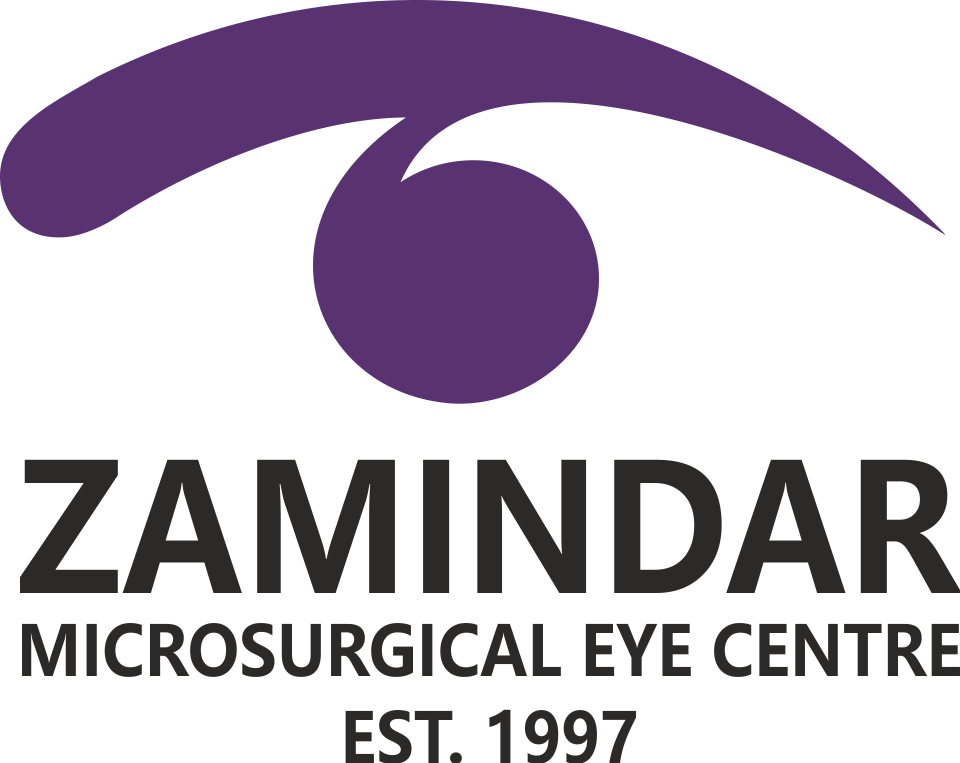Dry Eye – Symptoms, Causes, Preventive Measures and Treatment

Introduction
As per a large-scale study in India involving about 14.5 lakh participants had found about 1.46%, i.e. 21,000 were diagnosed with the dry eye disease. The condition (dry eye) may impact the quality of life if it goes undiagnosed and addressed early. This blog covers dry eye definition, symptoms, causes, treatments, and possible prevention.
What is Dry Eye?
Dry eye, also known as dry eye disease or dry syndrome, is a multifactorial disease wherein the eye surface does not receive adequate moisture and lubrication.
How does dry eye occur?
Inadequate secretion of tears
Tear film present in the front part of the eye is responsible for the secretion of tears, which contains the following components:
- Water to keep the surface moist
- Lipids to avoid evaporation of water
- Mucus to assist tear to spread evenly across the surface
- Antibodies that keep infections at bay
The tear film has three layers, and abnormal functioning in any of them disturbs the composition of the tear, leading to dry eye disease. For example, reduced production of aqueous component tears from lacrimal glands reduces moisture over the eye surface.
Increased evaporation of tears
The outermost layer of tear film chiefly comprises lipids produced by meibomian glands. The function of lipids is to reduce the evaporation of tears. A deficiency or an abnormality in the gland can lead to dry eyes.
Symptoms of Dry Eye:
Dry eye symptoms range in intensity. Some of the common symptoms are:
- Eye dryness or gritty feeling
- Burning/stinging sensation in the eye
- Redness of the Eye
- Extreme tears (dryness reflex)
- Blurred Vision
- Sensitivity to Light
- Contact lens discomfort
- Eye mucus stringiness
The Causes of Dry Eye:
Several things can cause dry eye syndrome. Among the leading causes:
- Aging: Tear production decreases with age.
- Environmental factors: Dry, windy, and smoky conditions promote tear evaporation.
- Pre-existing health issues: Diabetes, rheumatoid arthritis, and Sjögren’s syndrome can also influence tear production.
- Certain Medications: Antihistamines, decongestants, and antidepressants can reduce tear production.
- Hormonal changes: Dry eye might also result from hormonal changes like menopause.
- Screen Time: Prolonged digital screen use may inhibit blinking, causing dry eye.
Dry Eye Treatments:
The treatment of dry eye depends on its causes and severity. Some common treatments:
Medicated eye drops: Consult the best eye specialist in Bangalore to prescribe drops to relieve irritation and increase tear production.
Punctal plugs: Any good eye hospitals in Bangalore may direct these small plugs, which may delay tear outflow and moisten the eyes.
Meibomian gland expression: Heat and mild pressure on the eyelids unblock oil glands, enhancing tear film quality, which needs to be done in consultation with the best eye hospital in Bangalore.
Lifestyle changes: Regular screen breaks, humidifier use, and hydration can alleviate dry eye.
For more information, please read our blog about advanced dry eye diagnosis and treatment.
How to Prevent Dry Eye:
Below are some preventive measures:
Blink regularly: Focus on blinking, especially during long periods of screen time, to ensure adequate lubrication of the eyes.
Follow a balanced diet: Include omega-3 fatty acids-rich food ingredients, like salmon and flaxseeds, to enhance tear production.
Wear protective eyewear: When in windy or dusty conditions or while participating in certain sports, use protective eyewear like wraparound sunglasses.
Limit screen time: Take regular breaks to rest your eyes when using digital devices for extended periods.
Avoid smoke: Steer clear of smoke and smoke-filled environments as it can exacerbate dry eye symptoms.
Stay hydrated: Drink plenty of water or fluids to maintain healthy water content, which can benefit your eyes.
Conclusion
Untreated, dry eyes can impact your quality of life. Effectively managing this ailment requires understanding its symptoms, causes, and remedies. You can prevent dry eye and keep your eyes healthy by taking preventive actions regularly. Contact an eye doctor for a thorough diagnosis and customized treatment plan if you suspect dry eye syndrome.
Watch our YouTube video for detailed information about diagnosis and treatment for dry eye. Subscribe to our channel for more videos on various eye health-related subjects.

